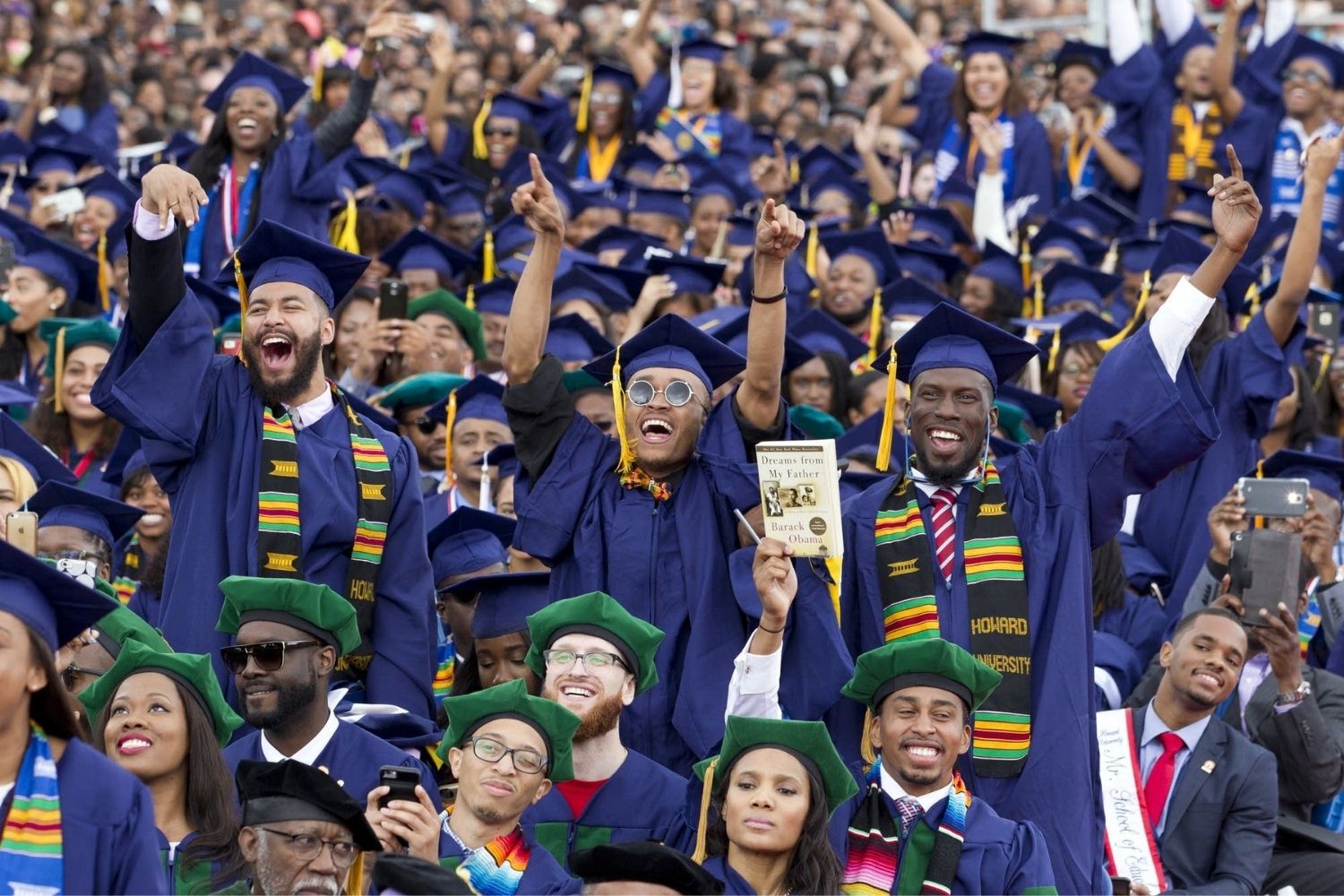
Historically Black Colleges and Universities (HBCUs) have played a pivotal role in American education for over a century. But what makes HBCUs so special? These institutions were established to provide higher education opportunities to African Americans during times when access was severely limited. Today, they continue to foster a rich cultural heritage, academic excellence, and community leadership. From producing notable alumni to contributing significantly to various professional fields, HBCUs have a unique and lasting impact. Whether you're curious about their history, achievements, or contributions to society, these 35 facts will give you a deeper appreciation for the vital role HBCUs play.
What Are HBCUs?
Historically Black Colleges and Universities (HBCUs) have played a crucial role in American education. They were established before the Civil Rights Act of 1964 to provide higher education to African Americans. Here are some fascinating facts about HBCUs.
-
First HBCU: Cheyney University of Pennsylvania, founded in 1837, holds the title of the first HBCU.
-
Number of HBCUs: There are currently 107 HBCUs in the United States.
-
Public vs. Private: Out of these, 51 are public institutions, while 56 are private.
-
Land-Grant HBCUs: The Morrill Act of 1890 designated 19 HBCUs as land-grant institutions, providing federal funds for agricultural and mechanical education.
-
Diverse Programs: HBCUs offer a wide range of programs, from liberal arts to STEM fields.
Impact on African American Education
HBCUs have significantly impacted African American education and continue to do so. They have produced a large number of African American professionals and leaders.
-
Graduation Rates: HBCUs graduate nearly 20% of African Americans who earn undergraduate degrees.
-
STEM Graduates: Over 25% of African American graduates with STEM degrees come from HBCUs.
-
Medical Degrees: HBCUs produce a significant portion of African American doctors and dentists.
-
Law Degrees: Many African American lawyers have graduated from HBCU law schools.
-
Business Leaders: HBCUs have produced numerous African American business leaders and entrepreneurs.
Cultural and Historical Significance
HBCUs are not just educational institutions; they are cultural and historical landmarks that have shaped the African American experience.
-
Civil Rights Movement: Many HBCUs were hotbeds for civil rights activism during the 1960s.
-
Notable Alumni: HBCUs have produced notable alumni, including Martin Luther King Jr., Oprah Winfrey, and Thurgood Marshall.
-
Cultural Heritage: HBCUs preserve and promote African American culture and history.
-
Homecoming Events: HBCU homecomings are legendary, featuring parades, concerts, and football games.
-
Greek Life: HBCUs are known for their vibrant Greek life, with many historically Black fraternities and sororities.
Financial Contributions and Challenges
HBCUs face unique financial challenges but also receive significant contributions from alumni and supporters.
-
Endowments: Some HBCUs have substantial endowments, but many struggle with financial stability.
-
Alumni Giving: Alumni contributions are crucial for the sustainability of HBCUs.
-
Federal Funding: HBCUs receive federal funding through various programs, including Title III and the HBCU Capital Financing Program.
-
Scholarships: Many HBCUs offer scholarships specifically for African American students.
-
Fundraising Campaigns: HBCUs often engage in fundraising campaigns to support their programs and facilities.
Unique Traditions and Innovations
HBCUs have unique traditions and are also at the forefront of educational innovations.
-
Marching Bands: HBCU marching bands are famous for their high-energy performances and intricate routines.
-
Innovative Programs: Many HBCUs offer innovative programs in fields like cybersecurity, renewable energy, and entrepreneurship.
-
Study Abroad: HBCUs provide study abroad opportunities to expose students to global cultures and perspectives.
-
Online Education: Several HBCUs have embraced online education to reach a broader audience.
-
Community Service: HBCUs emphasize community service and social responsibility.
Contributions to Arts and Entertainment
HBCUs have made significant contributions to arts and entertainment, enriching American culture.
-
Music and Dance: HBCUs have produced influential musicians and dancers, including members of the Motown era.
-
Theater and Film: Many HBCU alumni have made their mark in theater and film.
-
Literature: HBCUs have nurtured many African American writers and poets.
-
Visual Arts: HBCUs support visual arts through galleries and exhibitions.
-
Media and Journalism: HBCUs have produced prominent journalists and media personalities.
Athletic Achievements
HBCUs have a rich history of athletic achievements and have produced many professional athletes.
-
Football: HBCU football teams have a storied history and fierce rivalries.
-
Basketball: Many HBCU basketball players have gone on to play in the NBA.
-
Track and Field: HBCUs have produced Olympic medalists in track and field.
-
Other Sports: HBCUs compete in a variety of sports, including baseball, tennis, and volleyball.
-
Athletic Scholarships: HBCUs offer athletic scholarships to support student-athletes.
The Last Word on HBCUs
HBCUs have played a vital role in shaping education and culture in the U.S. From producing influential leaders to fostering a sense of community, these institutions are more than just schools. They’re pillars of history, culture, and progress. HBCUs offer unique opportunities, rich traditions, and a supportive environment that helps students thrive. They’ve been at the forefront of social change, breaking barriers and setting new standards. Whether it’s their academic achievements, cultural contributions, or the strong sense of identity they instill, HBCUs continue to make a lasting impact. So, next time you think about higher education, remember the incredible legacy and ongoing contributions of HBCUs. They’re not just part of history; they’re shaping the future.
Was this page helpful?
Our commitment to delivering trustworthy and engaging content is at the heart of what we do. Each fact on our site is contributed by real users like you, bringing a wealth of diverse insights and information. To ensure the highest standards of accuracy and reliability, our dedicated editors meticulously review each submission. This process guarantees that the facts we share are not only fascinating but also credible. Trust in our commitment to quality and authenticity as you explore and learn with us.
